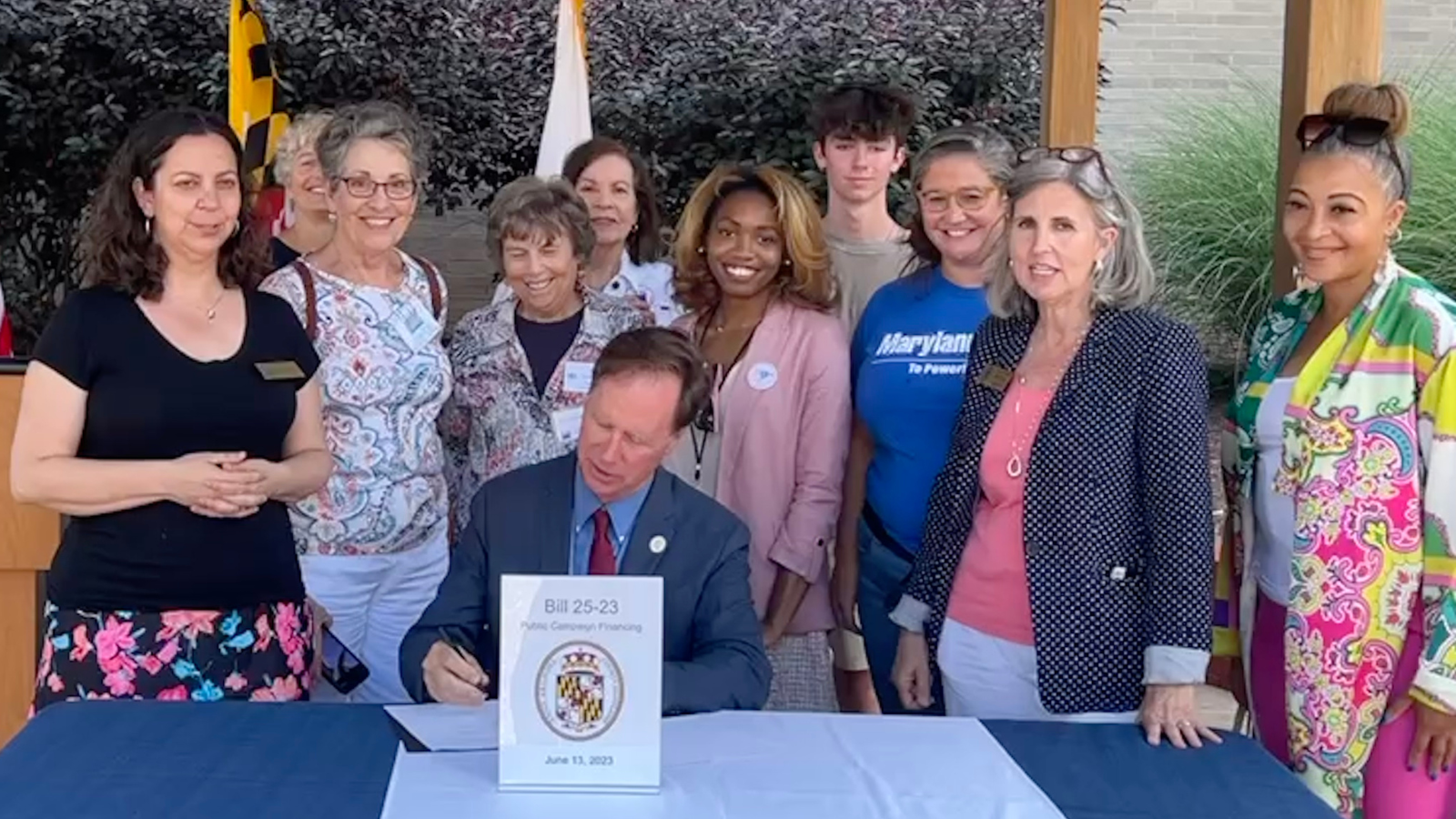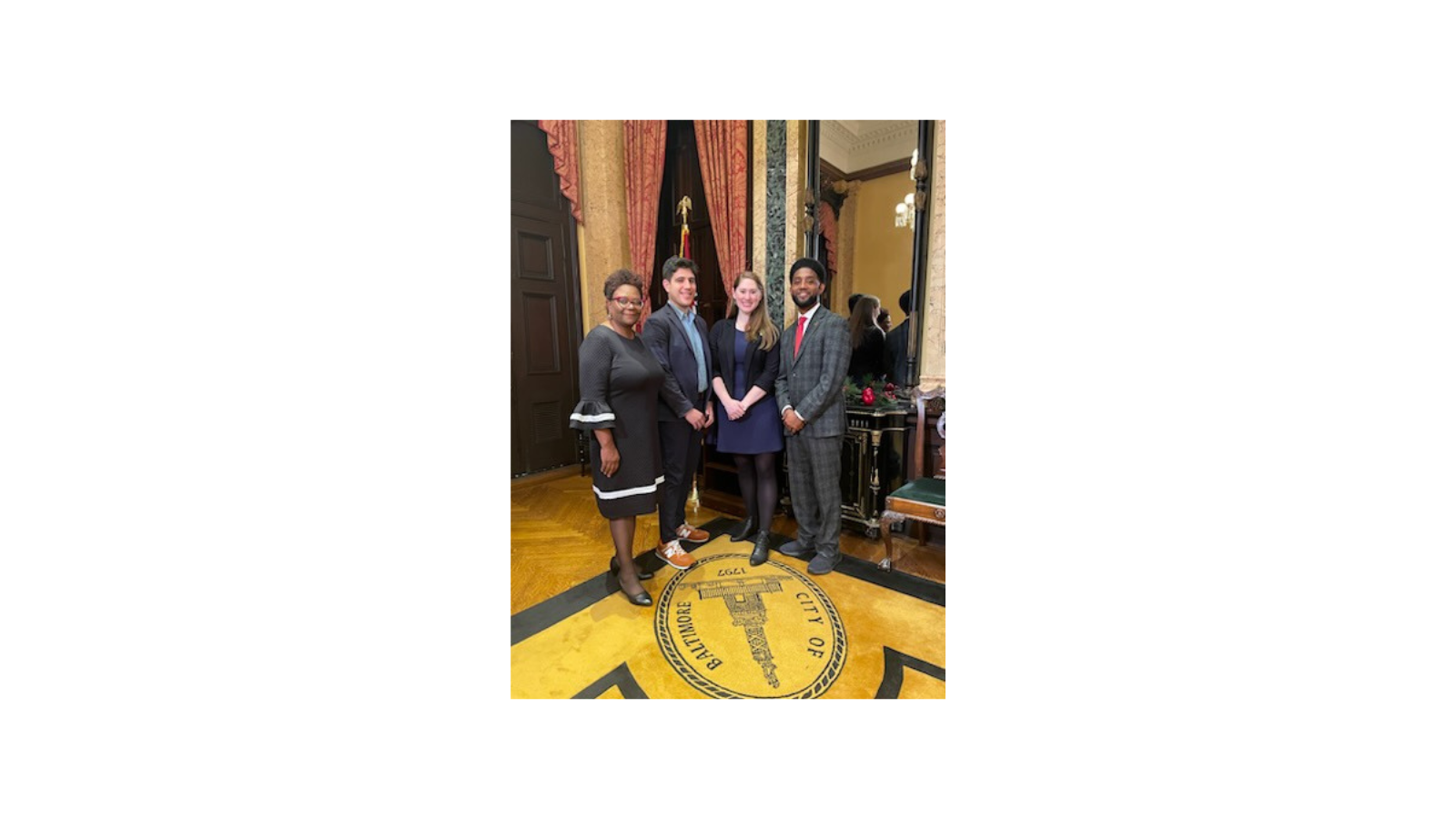Maryland General Assembly Bill Crossover Deadline – Democracy Update
Yesterday (March 21st) was the bill crossover deadline for the Maryland General Assembly. In other words, it’s the deadline for bills to move from one chamber to the other in order to be considered during this legislative session. I’ll be taking a look at which democracy bills did and didn’t move through at least one chamber of the Maryland General Assembly by this deadline.
Yesterday (March 21st) was the bill crossover deadline for the Maryland General Assembly. In other words, it’s the deadline for bills to move from one chamber to the other in order to be considered during this legislative session. I’ll be taking a look at which democracy bills did and didn’t move through at least one chamber of the Maryland General Assembly by this deadline.
Bills that moved!
Improving Elections Systems
SB 163, sponsored by Sen. Kagan, allows for ballot pre-processing and ballot curing. Ballot curing allows people who forgot to sign their mail-in ballot envelope to “cure” their mail-in ballot by going to the Board of Elections office to sign that envelope. Ballot pre-processing allows local Boards of Elections to process ballots–but not count them–before Election Day, allowing for quicker tabulation once the ballots start getting counted. Similar legislation has been sponsored by Sen. Lam and Del. Moon.
The Senate voted in favor of this legislation, and now it is under consideration by the House Ways and Means Committee. You can find our testimony in support of this bill here.
Special Elections
SB 73, sponsored by Sen. Lam, requires certain vacancies in the General Assembly to be filled by special election. Currently, local party central committees, which often are made up of a single-digit number of party insiders, vote for a replacement. A special election is more representative of the will of the people and more democratic.
The Senate unanimously voted in support of this legislation. However, the committee hearing for this bill in the House was canceled. For more information about the importance of special elections for democracy, check out our op-ed in Maryland Matters in support of the bill.
Bills that didn’t move
Democracy Constitutional Amendment
SB 895, sponsored by Sen. Will Smith, amends the Maryland constitution to establish that every Marylander has the right to campaign finance transparency– the right to know who is contributing to elections and how that money is being spent. It also enshrines the right to publicly financed elections.
This bill did not receive a vote in the Senate Education, Health and Environmental Affairs (EHE) committee. You can find our testimony in support of the bill here.
Public Financing Act
SB 358, sponsored by Sen. Pinsky, creates a public campaign financing program for candidates for the House of Delegates and the state Senate modeled off of the existing program for gubernatorial candidates. Public campaign financing reduces the influence of wealthy donors in the political process and has been successfully implemented in multiple local jurisdictions throughout Maryland.
This bill did not receive a vote in EHE. You can find our testimony in support of this bill here.
Expanding Local Fair Elections
HB 488, sponsored by Del. Feldmark, enables jurisdictions with existing public campaign financing programs to expand those programs to include the offices of State’s Attorney, sheriff, register of wills, judge and clerk of the Circuit Court, judge of the Orphans’ Court or an elected member of the County Board of Education.
This bill did not receive a vote in Ways and Means. You can find our testimony in support of this bill here.
Topics
Authors
Rishi Shah
Find Out More

Small donor public financing victory in Anne Arundel County

Anne Arundel County Considers Small Donor Public Financing

Mayor Scott swears in Fair Election Fund Commissioners

